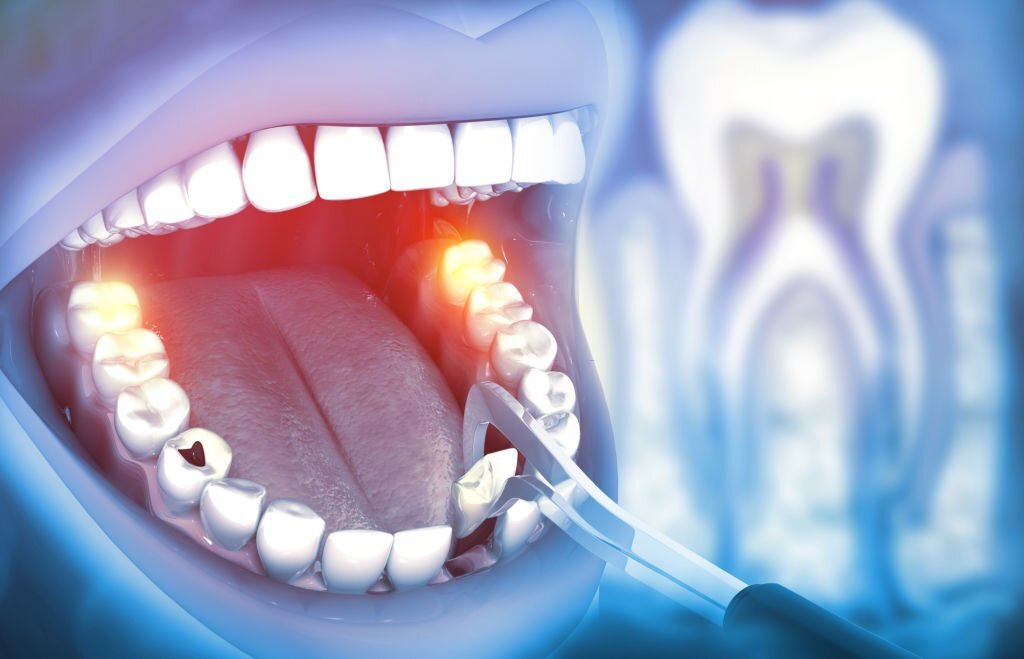You may be maintaining excellent oral and dental health every day. That’s great, and you should keep it up! However, sadly, according to any professional and knowledgeable Dentist in Taylor, TX, most of you would need to undergo tooth extraction procedures at least once in a lifetime. Sad but true!
We know the nerve-wracking pain you need to go through during tooth extraction, but sometimes it’s the only option to remove a severely infected tooth and to prevent others from getting damaged or infected.
In this article, you will get a brief idea about tooth extraction, when you need it, and the processes involved. We will also highlight the complications associated with tooth extractions and some helpful tips to recover faster post-extraction.
When Do You Need Tooth Extraction?
Tooth extraction obliterates one or more teeth from their sockets in the bone. This is an outpatient procedure usually carried out by a trained dentist or a dental surgeon. Tooth extraction is not usually performed to remove milk teeth as it can be done without any intervention from a dental professional.
Your dentist recommends a tooth extraction when there’s severe damage or infection in your tooth or when there’s critical gum disease. Teeth extractions are necessary to maintain healthy dental health and make your teeth and gums more functional. Get them done by a certified dentist specializing in Tooth Extractions in Taylor, TX.
You will need to get a tooth extraction when –
- You have one or more severely infected or decayed teeth. Keeping any decayed tooth would affect your overall dental and gum health and spread the infection to adjacent teeth.
- You have gum or dental abscess that has affected the tooth’s root.
- You have experienced major trauma, accident, or injury, which resulted in a severely broken or damaged tooth, which can no longer be repaired using a crown or filling.
- You are suffering from overcrowded teeth or malocclusion.
- You still have your milk teeth that did not fall off naturally during childhood.
- You are getting braces to straighten and correct your teeth alignment. Sometimes the dentist would recommend you get one or more teeth extracted to make more room for your teeth to fall into the desired position.
What are the Processes Involved?
There are two main processes of tooth extraction –
-
Simple Extraction:
It is done when the tooth is visible above your gum line. Your dentist will apply local anesthesia to make the process painless and quick.
-
Surgical Extraction:
This is a bit complicated as the dentist needs to cut your gum to extract a tooth that’s hidden inside your gum. The dentist may sometimes need to take out one or more gum tissues or even the bone to extract the damaged or infected tooth successfully. In a surgical extraction, the dentist uses sedation to relieve your pain and anxiety levels in surgical extraction.
Are There Any Complications?
If you see a specialized and skilled dentist for getting tooth extractions, you should not have any complications. Before performing the tooth extraction, your dentist or dental surgeon will check your health records, medical history, and dental issues.
However, some patients may experience continuous bleeding, prolonged swelling, fever, discomfort, and severe pain in severe cases or due to underlying health conditions. If you notice any of these symptoms, contact your dentist immediately.
Tips to Recover Quicker Post-Extraction
Your dentist would recommend you to –
- Keep the gauze in place (if your dentist has placed one over your wound) and avoid touching it.
- Abstain from smoking and drinking.
- Stay relaxed and take it easy. Too much stress may make things worse.
- Avoid mouth washing for as long as your dentist advises.
- Eat carefully for a few months after the extraction. Your dentist may advise you to avoid hard food particles for a few days.
- Drink more water or other healthy fluids to prevent dehydration.
- You may need to take painkillers or use ice packs to relieve the pain.
- Avoid touching the wound.
Key Takeaways
The above tips should help you to manage any pain or discomfort post-extraction. Keep in touch with your dentist to learn about the expectations and the outcomes of getting a tooth extraction. Never leave your infected or damaged teeth unattended, as it may affect your overall health.


